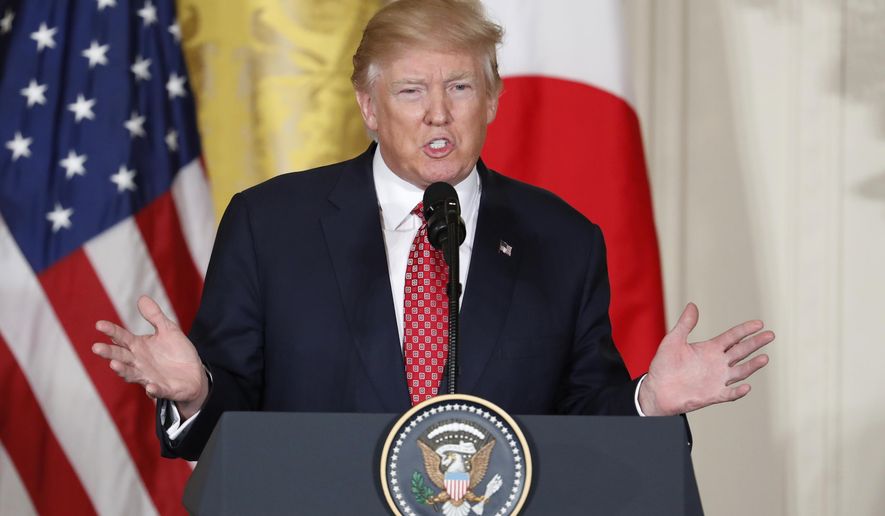President Trump said Saturday that he hasn’t begun to negotiate the costs of his planned border wall, vowing to use his deal-making skills to get a better price than the latest estimate of more than $20 billion reported earlier this week.
The president also cited The Washington Times’ report Friday that after a judge halted his extreme vetting executive order, the State Department surged admissions of Syrians, Iraqis and other refugees from the seven countries Mr. Trump is most worried about in connection to terrorism.
“Our legal system is broken! ’77% of refugees allowed into U.S. since travel reprieve hail from seven suspect countries,’” the president said in a series of Twitter posts. “SO DANGEROUS!”
The Times reported that before the judge’s Feb. 3 order halting what the president has termed extreme vetting, just 31 percent of refugees hailed from Yemen, Somalia, Sudan, Syria, Libya, Iraq and Iran. In the week after the judge reinstated the refugee program, 77 percent of admissions came from those countries.
As of Saturday morning the rate was still 72 percent, with a whopping 50 percent coming from Iraq and Syria alone.
Analysts told The Times it appeared the State Department was trying to get as many of those refugees in before the program could be shut down again.
Mr. Trump also took to Twitter Saturday morning to push back against a Reuters report that said a draft Homeland Security document put the cost at $21 billion and put construction time at several years.
“I am reading that the great border WALL will cost more than the government originally thought, but I have not gotten involved in the design or negotiations yet,” he said. “When I do, just like with the F-35 FighterJet or the Air Force One Program, price will come WAY DOWN!”
The president was referring to Lockheed Martin and Boeing, the companies responsible for the F-35 Joint Strike Fighter and the next-generation Air Force One, respectively. During the transition ahead of his inauguration Mr. Trump harangued both companies and earned pledges to reduce the costs of the programs.
Lockheed has already announced the average cost of each F-35 in the next back will be cheaper — though some analysts say that was in the works even before Mr. Trump got involved.
• Stephen Dinan can be reached at sdinan@washingtontimes.com.




Please read our comment policy before commenting.